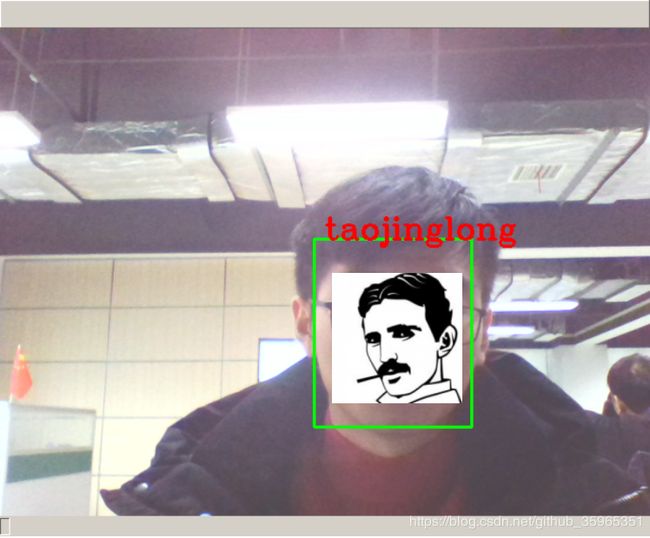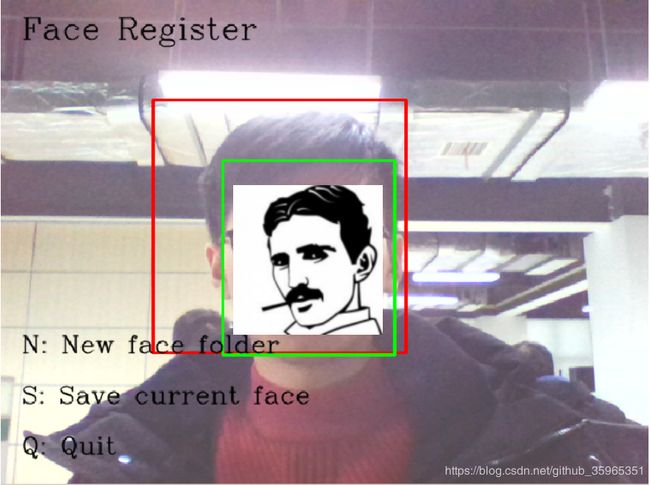- 遥感影像的切片处理
sand&wich
计算机视觉python图像处理
在遥感影像分析中,经常需要将大尺寸的影像切分成小片段,以便于进行详细的分析和处理。这种方法特别适用于机器学习和图像处理任务,如对象检测、图像分类等。以下是如何使用Python和OpenCV库来实现这一过程,同时确保每个影像片段保留正确的地理信息。准备环境首先,确保安装了必要的Python库,包括numpy、opencv-python和xml.etree.ElementTree。这些库将用于图像处理
- Python实现下载当前年份的谷歌影像
sand&wich
python开发语言
在GIS项目和地图应用中,获取最新的地理影像数据是非常重要的。本文将介绍如何使用Python代码从Google地图自动下载当前年份的影像数据,并将其保存为高分辨率的TIFF格式文件。这个过程涉及地理坐标转换、多线程下载和图像处理。关键功能该脚本的核心功能包括:坐标转换:支持WGS-84与WebMercator投影之间转换,以及处理中国GCJ-02偏移。自动化下载:多线程下载地图瓦片,提高效率。图像
- Python实现TIFF 文件转换为 PNG 和 JPG 格式
sand&wich
python开发语言
在日常的图像处理工作中,可能会遇到需要将TIFF格式的图像转换为其他格式的情况,例如PNG和JPG。下面,本文将介绍如何使用Python和GDAL库实现这一功能。准备工作在开始之前,请确保已经安装了必要的库:GDAL(GeospatialDataAbstractionLibrary)可以使用以下命令安装GDAL:pipinstallgdal代码实现以下是一个将TIFF文件转换为PNG文件的示例代码
- OpenCV图像处理技术(Python)——入门
森屿_
opencv
©FuXianjun.AllRightsReserved.OpenCV入门图像作为人类感知世界的视觉基础,是人类获取信息、表达信息的重要手段,OpenCV作为一个开源的计算机视觉库,它包括几百个易用的图像成像和视觉函数,既可以用于学术研究,也可用于工业邻域,它于1999年由因特尔的GaryBradski启动,OpenCV库主要由C和C++语言编写,它可以在多个操作系统上运行。1.1图像处理基本操作
- opencv学习:图像旋转的两种方法,旋转后的图片进行模板匹配代码实现
夜清寒风
学习opencv机器学习人工智能计算机视觉
图像旋转在图像处理中,rotate和rot90是两种常见的图像旋转方法,它们在功能和使用上有一些区别。下面我将分别介绍这两种方法,并解释它们的主要区别rot90方法rot90方法是NumPy提供的一种数组旋转函数,它主要用于对二维数组(如图像)进行90度的旋转。这个方法比较简单,只支持90度的倍数旋转,不支持任意角度旋转。使用NumPy进行旋转使用NumPy的rot90函数对模板图像进行旋转操作。
- Python OpenCV图像处理:从基础到高级的全方位指南
极客代码
玩转Python开发语言pythonopencv图像处理计算机视觉
目录第一部分:PythonOpenCV图像处理基础1.1OpenCV简介1.2PythonOpenCV安装1.3实战案例:图像显示与保存1.4注意事项第二部分:PythonOpenCV图像处理高级技巧2.1图像变换2.2图像增强2.3图像复原第三部分:PythonOpenCV图像处理实战项目3.1图像滤波3.2图像分割3.3图像特征提取第四部分:PythonOpenCV图像处理注意事项与优化策略4
- 服务器状态监控php源码,服务器状态监控_监控Linux服务器网站状态的SHELL脚本
温糯米
服务器状态监控php源码
摘要腾兴网为您分享:监控Linux服务器网站状态的SHELL脚本,蜗牛集市,同花顺,探客宝,手柄助手等软件知识,以及日期倒计时插件,云南省教育资源公共,rui手机桌面,小屁孩桌面便签,合金装备崛起复仇,朝夕日历,photoshop图像处理软件,一年级学生每日计划表,悟空找房,饿了吗外卖商家版,逃生,中国民宿网,realpolitiks,交通安全知识竞赛,雅思流利说等软件it资讯,欢迎关注腾兴网。1
- 多模态Transformer之文本与图像联合建模 - Transformer教程
shandianfk_com
ChatGPTTransformertransformer深度学习人工智能
大家好,今天我们来聊聊一个既前沿又有趣的话题——多模态Transformer,特别是文本与图像的联合建模。对于很多小伙伴来说,Transformer这个词已经不陌生了,但它不仅仅应用于自然语言处理,还能在图像处理、甚至是多模态数据的处理上大显身手。接下来,我会带大家深入了解什么是多模态Transformer,以及它是如何实现文本与图像的联合建模的。Transformer简介首先,我们简单回顾一下T
- Matlab2024a安装教程
是阿宇呢
信息可视化开发语言
MATLAB是一款商业数学软件,用于算法开发、数据可视化、数据分析以及数值计算的高级技术计算语言和交互式环境,主要包括MATLAB和Simulink两大部分,可以进行矩阵运算、绘制函数和数据、实现算法、创建用户界面、连接其他编程语言的程序等,主要应用于工程计算、控制设计、信号处理与通讯、图像处理、信号检测、金融建模设计与分析等领域。1.解压安装包:①鼠标右击【MATLABR2024a(64bit)
- 图像处理的作用(6幅图诗)
静月园
静月园著2020年1月️4日1自然力出现的图形画面,即无序,又有形。奇妙令人联想无限。好象理石花纹,又类似草木树植。2为何要如此色彩?好奇怪哦!自然的物态鬼斧神工。3孩童们信手涂鸦,但是脑控制了手的动作,所绘画的物体形状代表了孩子们对环境人物的所看,所听,所理解的形状。脑的心理活动影像,被转换成手的动作输出到笔尖的移动动作上,于是我们看到了简单的结构形状图。而对于我们的写作者来说,我们的作家脑内有
- OpenCV高阶操作
富士达幸运星
opencv人工智能计算机视觉
在图像处理与计算机视觉领域,OpenCV(OpenSourceComputerVisionLibrary)无疑是最为强大且广泛使用的工具之一。从基础的图像读取、1.图片的上下,采样下采样(Downsampling)下采样通常用于减小图像的尺寸,从而减少图像中的像素数。这个过程可以通过多种方法实现,但最常见的是通过图像金字塔中的pyrDown函数(在OpenCV中)或其他类似的滤波器(如平均池化、最
- opencv 之 实战项目 识别银行卡上的数字
SEVEN-YEARS
opencv计算机视觉人工智能
OpenCV之实战项目:识别银行卡上的数字引言在日常生活中,银行卡的识别是一个常见的需求,特别是在金融领域。本实战项目旨在使用OpenCV库来识别银行卡上的数字。我们将通过模板匹配的方法,结合图像处理技术,来准确识别银行卡上的数字序列。项目准备本项目需要安装Python和OpenCV库。确保已经安装了必要的库,并准备好银行卡图像和数字模板图像。实验素材定义函数importcv2defsort_co
- 【图像压缩】奇异值分解SVD灰色图像压缩(可设置压缩比)【含Matlab源码 4358期】
Matlab武动乾坤
Matlab图像处理(进阶版)matlab
✅博主简介:热爱科研的Matlab仿真开发者,修心和技术同步精进,Matlab项目合作可私信。个人主页:海神之光代码获取方式:海神之光Matlab王者学习之路—代码获取方式⛳️座右铭:行百里者,半于九十。更多Matlab仿真内容点击Matlab图像处理(进阶版)路径规划(Matlab)神经网络预测与分类(Matlab)优化求解(Matlab)语音处理(Matlab)信号处理(Matlab)车间调度
- Python OpenCV精讲系列 - 高级图像处理技术(五)
极客代码
PythonOpenCV精讲pythonopencv图像处理开发语言人工智能计算机视觉
⚡️⚡️专栏:PythonOpenCV精讲⚡️⚡️本专栏聚焦于Python结合OpenCV库进行计算机视觉开发的专业教程。通过系统化的课程设计,从基础概念入手,逐步深入到图像处理、特征检测、物体识别等多个领域。适合希望在计算机视觉方向上建立坚实基础的技术人员及研究者。每一课不仅包含理论讲解,更有实战代码示例,助力读者快速将所学应用于实际项目中,提升解决复杂视觉问题的能力。无论是入门者还是寻求技能进
- K-means 算法的介绍与应用
小魏冬琅
matlab算法kmeans机器学习
目录引言K-means算法的基本原理表格总结:K-means算法的主要步骤K-means算法的MATLAB实现优化方法与改进K-means算法的应用领域表格总结:K-means算法的主要应用领域结论引言K-means算法是一种经典的基于距离的聚类算法,在数据挖掘、模式识别、图像处理等多个领域中得到了广泛应用。其核心思想是将相似的数据对象聚类到同一个簇中,而使得簇内对象的相似度最大、簇间的相似度最小
- 基于VGG的猫狗识别
卑微小鹿
tensorflowtensorflow
由于猫和狗的数据在这里,所以就做了一下分类的神经网络1、首先进行图像处理:importcsvimportglobimportosimportrandomos.environ['TF_CPP_MIN_LOG_LEVEL']='2'importtensorflowastffromtensorflowimportkerasfromtensorflow.kerasimportlayersimportnum
- MATLAB车牌定位和识别系统
清风明月来几时
图像算法处理matlab开发语言
有很多方法可以实现MATLAB车牌的定位和识别系统。以下是一种可能的实现步骤:车牌定位:使用图像处理技术(如边缘检测、区域生长或颜色分割)来检测图像中的车牌区域。使用形态学操作来排除不符合车牌形状的区域。对车牌区域进行裁剪或调整大小,以便后续的识别。车牌识别:将车牌图像转换为灰度图像。使用图像处理技术(如二值化、滤波或增强)来减少噪音并突出字符。使用字符分割算法将车牌中的字符分开。使用特征提取方法
- MATLAB车牌识别系统
清风明月来几时
图像算法处理matlab开发语言
MATLAB车牌识别系统是一个基于MATLAB开发的用于识别和提取车牌信息的系统。该系统使用图像处理和机器学习算法来实现车牌的定位和字符识别。以下是一个基本的MATLAB车牌识别系统的工作流程:图像预处理:首先,将输入的图像进行预处理,包括灰度化、高斯平滑、边缘检测等操作,以提高后续的车牌定位和字符识别的准确性。车牌定位:在预处理后的图像中,使用形态学运算和边缘检测算法来寻找车牌的位置。这可以通过
- 直方图匹配(Histogram Matching)
姜太公钓鲸233
计算机视觉人工智能机器学习
直方图匹配(HistogramMatching),也被称为直方图规定化(HistogramSpecification)或直方图修正(HistogramEqualization),是一种图像处理技术,用于调整图像的直方图,以使其与某个目标直方图相匹配。目标直方图通常是用户定义的或者是希望获得的期望分布。直方图匹配的目标是改变图像的像素值分布,从而使其在视觉上更接近目标直方图。这对于图像增强、风格迁移
- uint8
姜太公钓鲸233
pythonnumpy
无符号8位整数(uint8)是一种数据类型,通常用于表示整数,但它不包括负数,只能表示非负的整数值。它的范围是从0到255,共有256个不同的可能取值。在计算机中,整数数据类型可以分为有符号和无符号。有符号整数可以表示正数、负数和零,而无符号整数只能表示非负的整数。在图像处理中,无符号8位整数通常用于表示灰度图像的像素值。一个像素的灰度值代表了图像中对应点的亮度强度,通常从0(黑色)到255(白色
- 【Python第三方库】OpenCV库实用指南
墨辰JC
Pythonopencvpython人工智能学习
文章目录前言安装OpenCV读取图像图像基本操作获取图像信息裁剪图像图像缩放图像转换为灰度图图像模糊处理边缘检测图像翻转图像保存视频相关操作方法讲解读取视频从摄像头读取视频前言OpenCV(OpenSourceComputerVisionLibrary)作为一个强大的计算机视觉库,提供了丰富的图像处理和计算机视觉功能,尤其在图像识别、对象检测、视频分析等领域有着广泛的应用。本文将带领读者使用Pyt
- 计算机视觉之旅-进阶-图像滤波处理
撸码猿
计算机视觉图像处理人工智能
1.基本概念1.1.数字图像图像处理的对象是数字图像,它是由像素点阵列表示的图像。需要了解像素、图像分辨率、灰度级、RBG等图像表示方法。用numpy数组表示,每个元素为像素值。例如RGB图像 importnumpyasnp img=np.array([[[255,0,0],[0,255,0]],[[0,0,255],[255,255,255]]]) 1.2.采样和量化数字图像是通过采样和量化得到
- 动手学深度学习(pytorch土堆)-03常见的Transforms
#include<菜鸡>
深度学习深度学习pytorch人工智能
Composetransforms.Compose是PyTorch中的一个函数,用于将多个图像变换操作组合在一起,形成一个变换流水线。这样可以将一系列的图像处理操作整合为一个步骤,便于对图像进行批量预处理或增强。基本用法transforms.Compose接受一个列表,列表中的每个元素是一个变换操作。这些操作会按照给定的顺序依次作用在输入的图像上。Example:>>>transforms.Com
- 论文学习笔记 VMamba: Visual State Space Model
Wils0nEdwards
学习笔记
概览这篇论文的动机源于在计算机视觉领域设计计算高效的网络架构的持续需求。当前的视觉模型如卷积神经网络(CNNs)和视觉Transformer(ViTs)在处理大规模视觉任务时展现出良好的表现,但都存在各自的局限性。特别是,ViTs尽管在处理大规模数据上具有优势,但其自注意力机制的二次复杂度对高分辨率图像处理时的计算成本极高。因此,研究者希望通过引入新的架构来降低这种复杂度,并提高视觉任务的效率。现
- 数字图像处理(一系列对图像进行处理、分析和改进的技术)
编程日记✧
智能医疗计算机视觉图像处理人工智能
数字图像处理是指对图像进行一系列的数学和算法处理,以增强、分析或理解图像的内容。这些处理包括从基础的像素操作到复杂的高维变换和机器学习模型。1.图像降噪在图像获取和传输过程中,往往会引入噪声。降噪技术用于减少这些噪声,同时尽量保持图像的细节。常见方法有:均值滤波:将像素邻域内的像素值取平均值,从而平滑图像。这种方法简单但可能会模糊边缘。高斯滤波:使用高斯函数为权重对像素进行加权平均,可以更好地平滑
- python图像处理的图像几何变换
yava_free
图像处理python计算机视觉
一.图像几何变换图像几何变换不改变图像的像素值,在图像平面上进行像素变换。适当的几何变换可以最大程度地消除由于成像角度、透视关系乃至镜头自身原因所造成的几何失真所产生的负面影响。几何变换常常作为图像处理应用的预处理步骤,是图像归一化的核心工作之一[1]。一个几何变换需要两部分运算:空间变换:包括平移、缩放、旋转和正平行投影等,需要用它来表示输出图像与输入图像之间的像素映射关系。灰度插值算法:按照这
- OpenCV3最常用的基本操作
HeoLis
OpenCV介绍OpenCV的全称是OpenSourceComputerVisionLibrary,是一个跨平台的计算机视觉库。OpenCV是由英特尔公司发起并参与开发,以BSD许可证授权发行,可以在商业和研究领域中免费使用。OpenCV可用于开发实时的图像处理、计算机视觉以及模式识别程序。该程序库也可以使用英特尔公司的IPP进行加速处理。以上是维基百科关于OpenCV的介绍,简单来说它就是处理图
- yolov5 +gui界面+单目测距 实现对图片视频摄像头的测距
毕设宇航
QQ767172261yolov5单目测距
可实现对图片,视频,摄像头的检测项目概述本项目旨在实现一个集成了YOLOv5目标检测算法、图形用户界面(GUI)以及单目测距功能的系统。该系统能够对图片、视频或实时摄像头输入进行目标检测,并估算目标的距离。通过结合YOLOv5的强大检测能力和单目测距技术,系统能够在多种应用场景中提供高效、准确的目标检测和测距功能。技术栈YOLOv5:用于目标检测的深度学习模型。OpenCV:用于图像处理和单目测距
- Python中cv2 (OpenCV, opencv-python)库的安装、使用方法demo最新详细教程
猫头虎
AI人工智能技术专栏pythonopencv开发语言计算机视觉语音识别目标检测神经网络
Python中cv2(OpenCV,opencv-python)库的安装、使用方法demo最新详细教程文章目录Python中cv2(OpenCV,opencv-python)库的安装、使用方法demo最新详细教程摘要引言正文OpenCV库概述安装OpenCV环境要求安装命令验证安装基础使用方法读取和显示图像图像处理示例❓常见问题解答小结参考资料表格总结总结和未来展望温馨提示摘要本文全面介绍了Pyt
- c#视觉应用开发中如何使用Emgu CV在C#中进行图像处理?
openwin_top
C#视觉应用开发问题系列c#图像处理开发语言
microPythonPython最小内核源码解析NI-motion运动控制c语言示例代码解析python编程示例系列python编程示例系列二python的Web神器Streamlit如何应聘高薪职位EmguCV是OpenCV的.NET包装器,可以让开发者在.NET语言(如C#)中使用OpenCV的功能进行图像处理。在进行图像处理时,EmguCV提供了丰富的API可以使用。以下是使用EmguCV
- [星球大战]阿纳金的背叛
comsci
本来杰迪圣殿的长老是不同意让阿纳金接受训练的.........
但是由于政治原因,长老会妥协了...这给邪恶的力量带来了机会
所以......现代的地球联邦接受了这个教训...绝对不让某些年轻人进入学院
- 看懂它,你就可以任性的玩耍了!
aijuans
JavaScript
javascript作为前端开发的标配技能,如果不掌握好它的三大特点:1.原型 2.作用域 3. 闭包 ,又怎么可以说你学好了这门语言呢?如果标配的技能都没有撑握好,怎么可以任性的玩耍呢?怎么验证自己学好了以上三个基本点呢,我找到一段不错的代码,稍加改动,如果能够读懂它,那么你就可以任性了。
function jClass(b
- Java常用工具包 Jodd
Kai_Ge
javajodd
Jodd 是一个开源的 Java 工具集, 包含一些实用的工具类和小型框架。简单,却很强大! 写道 Jodd = Tools + IoC + MVC + DB + AOP + TX + JSON + HTML < 1.5 Mb
Jodd 被分成众多模块,按需选择,其中
工具类模块有:
jodd-core &nb
- SpringMvc下载
120153216
springMVC
@RequestMapping(value = WebUrlConstant.DOWNLOAD)
public void download(HttpServletRequest request,HttpServletResponse response,String fileName) {
OutputStream os = null;
InputStream is = null;
- Python 标准异常总结
2002wmj
python
Python标准异常总结
AssertionError 断言语句(assert)失败 AttributeError 尝试访问未知的对象属性 EOFError 用户输入文件末尾标志EOF(Ctrl+d) FloatingPointError 浮点计算错误 GeneratorExit generator.close()方法被调用的时候 ImportError 导入模块失
- SQL函数返回临时表结构的数据用于查询
357029540
SQL Server
这两天在做一个查询的SQL,这个SQL的一个条件是通过游标实现另外两张表查询出一个多条数据,这些数据都是INT类型,然后用IN条件进行查询,并且查询这两张表需要通过外部传入参数才能查询出所需数据,于是想到了用SQL函数返回值,并且也这样做了,由于是返回多条数据,所以把查询出来的INT类型值都拼接为了字符串,这时就遇到问题了,在查询SQL中因为条件是INT值,SQL函数的CAST和CONVERST都
- java 时间格式化 | 比较大小| 时区 个人笔记
7454103
javaeclipsetomcatcMyEclipse
个人总结! 不当之处多多包含!
引用 1.0 如何设置 tomcat 的时区:
位置:(catalina.bat---JAVA_OPTS 下面加上)
set JAVA_OPT
- 时间获取Clander的用法
adminjun
Clander时间
/**
* 得到几天前的时间
* @param d
* @param day
* @return
*/
public static Date getDateBefore(Date d,int day){
Calend
- JVM初探与设置
aijuans
java
JVM是Java Virtual Machine(Java虚拟机)的缩写,JVM是一种用于计算设备的规范,它是一个虚构出来的计算机,是通过在实际的计算机上仿真模拟各种计算机功能来实现的。Java虚拟机包括一套字节码指令集、一组寄存器、一个栈、一个垃圾回收堆和一个存储方法域。 JVM屏蔽了与具体操作系统平台相关的信息,使Java程序只需生成在Java虚拟机上运行的目标代码(字节码),就可以在多种平台
- SQL中ON和WHERE的区别
avords
SQL中ON和WHERE的区别
数据库在通过连接两张或多张表来返回记录时,都会生成一张中间的临时表,然后再将这张临时表返回给用户。 www.2cto.com 在使用left jion时,on和where条件的区别如下: 1、 on条件是在生成临时表时使用的条件,它不管on中的条件是否为真,都会返回左边表中的记录。
- 说说自信
houxinyou
工作生活
自信的来源分为两种,一种是源于实力,一种源于头脑.实力是一个综合的评定,有自身的能力,能利用的资源等.比如我想去月亮上,要身体素质过硬,还要有飞船等等一系列的东西.这些都属于实力的一部分.而头脑不同,只要你头脑够简单就可以了!同样要上月亮上,你想,我一跳,1米,我多跳几下,跳个几年,应该就到了!什么?你说我会往下掉?你笨呀你!找个东西踩一下不就行了吗?
无论工作还
- WEBLOGIC事务超时设置
bijian1013
weblogicjta事务超时
系统中统计数据,由于调用统计过程,执行时间超过了weblogic设置的时间,提示如下错误:
统计数据出错!
原因:The transaction is no longer active - status: 'Rolling Back. [Reason=weblogic.transaction.internal
- 两年已过去,再看该如何快速融入新团队
bingyingao
java互联网融入架构新团队
偶得的空闲,翻到了两年前的帖子
该如何快速融入一个新团队,有所感触,就记下来,为下一个两年后的今天做参考。
时隔两年半之后的今天,再来看当初的这个博客,别有一番滋味。而我已经于今年三月份离开了当初所在的团队,加入另外的一个项目组,2011年的这篇博客之后的时光,我很好的融入了那个团队,而直到现在和同事们关系都特别好。大家在短短一年半的时间离一起经历了一
- 【Spark七十七】Spark分析Nginx和Apache的access.log
bit1129
apache
Spark分析Nginx和Apache的access.log,第一个问题是要对Nginx和Apache的access.log文件进行按行解析,按行解析就的方法是正则表达式:
Nginx的access.log解析正则表达式
val PATTERN = """([^ ]*) ([^ ]*) ([^ ]*) (\\[.*\\]) (\&q
- Erlang patch
bookjovi
erlang
Totally five patchs committed to erlang otp, just small patchs.
IMO, erlang really is a interesting programming language, I really like its concurrency feature.
but the functional programming style
- log4j日志路径中加入日期
bro_feng
javalog4j
要用log4j使用记录日志,日志路径有每日的日期,文件大小5M新增文件。
实现方式
log4j:
<appender name="serviceLog"
class="org.apache.log4j.RollingFileAppender">
<param name="Encoding" v
- 读《研磨设计模式》-代码笔记-桥接模式
bylijinnan
java设计模式
声明: 本文只为方便我个人查阅和理解,详细的分析以及源代码请移步 原作者的博客http://chjavach.iteye.com/
/**
* 个人觉得关于桥接模式的例子,蜡笔和毛笔这个例子是最贴切的:http://www.cnblogs.com/zhenyulu/articles/67016.html
* 笔和颜色是可分离的,蜡笔把两者耦合在一起了:一支蜡笔只有一种
- windows7下SVN和Eclipse插件安装
chenyu19891124
eclipse插件
今天花了一天时间弄SVN和Eclipse插件的安装,今天弄好了。svn插件和Eclipse整合有两种方式,一种是直接下载插件包,二种是通过Eclipse在线更新。由于之前Eclipse版本和svn插件版本有差别,始终是没装上。最后在网上找到了适合的版本。所用的环境系统:windows7JDK:1.7svn插件包版本:1.8.16Eclipse:3.7.2工具下载地址:Eclipse下在地址:htt
- [转帖]工作流引擎设计思路
comsci
设计模式工作应用服务器workflow企业应用
作为国内的同行,我非常希望在流程设计方面和大家交流,刚发现篇好文(那么好的文章,现在才发现,可惜),关于流程设计的一些原理,个人觉得本文站得高,看得远,比俺的文章有深度,转载如下
=================================================================================
自开博以来不断有朋友来探讨工作流引擎该如何
- Linux 查看内存,CPU及硬盘大小的方法
daizj
linuxcpu内存硬盘大小
一、查看CPU信息的命令
[root@R4 ~]# cat /proc/cpuinfo |grep "model name" && cat /proc/cpuinfo |grep "physical id"
model name : Intel(R) Xeon(R) CPU X5450 @ 3.00GHz
model name :
- linux 踢出在线用户
dongwei_6688
linux
两个步骤:
1.用w命令找到要踢出的用户,比如下面:
[root@localhost ~]# w
18:16:55 up 39 days, 8:27, 3 users, load average: 0.03, 0.03, 0.00
USER TTY FROM LOGIN@ IDLE JCPU PCPU WHAT
- 放手吧,就像不曾拥有过一样
dcj3sjt126com
内容提要:
静悠悠编著的《放手吧就像不曾拥有过一样》集结“全球华语世界最舒缓心灵”的精华故事,触碰生命最深层次的感动,献给全世界亿万读者。《放手吧就像不曾拥有过一样》的作者衷心地祝愿每一位读者都给自己一个重新出发的理由,将那些令你痛苦的、扛起的、背负的,一并都放下吧!把憔悴的面容换做一种清淡的微笑,把沉重的步伐调节成春天五线谱上的音符,让自己踏着轻快的节奏,在人生的海面上悠然漂荡,享受宁静与
- php二进制安全的含义
dcj3sjt126com
PHP
PHP里,有string的概念。
string里,每个字符的大小为byte(与PHP相比,Java的每个字符为Character,是UTF8字符,C语言的每个字符可以在编译时选择)。
byte里,有ASCII代码的字符,例如ABC,123,abc,也有一些特殊字符,例如回车,退格之类的。
特殊字符很多是不能显示的。或者说,他们的显示方式没有标准,例如编码65到哪儿都是字母A,编码97到哪儿都是字符
- Linux下禁用T440s,X240的一体化触摸板(touchpad)
gashero
linuxThinkPad触摸板
自打1月买了Thinkpad T440s就一直很火大,其中最让人恼火的莫过于触摸板。
Thinkpad的经典就包括用了小红点(TrackPoint)。但是小红点只能定位,还是需要鼠标的左右键的。但是自打T440s等开始启用了一体化触摸板,不再有实体的按键了。问题是要是好用也行。
实际使用中,触摸板一堆问题,比如定位有抖动,以及按键时会有飘逸。这就导致了单击经常就
- graph_dfs
hcx2013
Graph
package edu.xidian.graph;
class MyStack {
private final int SIZE = 20;
private int[] st;
private int top;
public MyStack() {
st = new int[SIZE];
top = -1;
}
public void push(i
- Spring4.1新特性——Spring核心部分及其他
jinnianshilongnian
spring 4.1
目录
Spring4.1新特性——综述
Spring4.1新特性——Spring核心部分及其他
Spring4.1新特性——Spring缓存框架增强
Spring4.1新特性——异步调用和事件机制的异常处理
Spring4.1新特性——数据库集成测试脚本初始化
Spring4.1新特性——Spring MVC增强
Spring4.1新特性——页面自动化测试框架Spring MVC T
- 配置HiveServer2的安全策略之自定义用户名密码验证
liyonghui160com
具体从网上看
http://doc.mapr.com/display/MapR/Using+HiveServer2#UsingHiveServer2-ConfiguringCustomAuthentication
LDAP Authentication using OpenLDAP
Setting
- 一位30多的程序员生涯经验总结
pda158
编程工作生活咨询
1.客户在接触到产品之后,才会真正明白自己的需求。
这是我在我的第一份工作上面学来的。只有当我们给客户展示产品的时候,他们才会意识到哪些是必须的。给出一个功能性原型设计远远比一张长长的文字表格要好。 2.只要有充足的时间,所有安全防御系统都将失败。
安全防御现如今是全世界都在关注的大课题、大挑战。我们必须时时刻刻积极完善它,因为黑客只要有一次成功,就可以彻底打败你。 3.
- 分布式web服务架构的演变
自由的奴隶
linuxWeb应用服务器互联网
最开始,由于某些想法,于是在互联网上搭建了一个网站,这个时候甚至有可能主机都是租借的,但由于这篇文章我们只关注架构的演变历程,因此就假设这个时候已经是托管了一台主机,并且有一定的带宽了,这个时候由于网站具备了一定的特色,吸引了部分人访问,逐渐你发现系统的压力越来越高,响应速度越来越慢,而这个时候比较明显的是数据库和应用互相影响,应用出问题了,数据库也很容易出现问题,而数据库出问题的时候,应用也容易
- 初探Druid连接池之二——慢SQL日志记录
xingsan_zhang
日志连接池druid慢SQL
由于工作原因,这里先不说连接数据库部分的配置,后面会补上,直接进入慢SQL日志记录。
1.applicationContext.xml中增加如下配置:
<bean abstract="true" id="mysql_database" class="com.alibaba.druid.pool.DruidDataSourc

